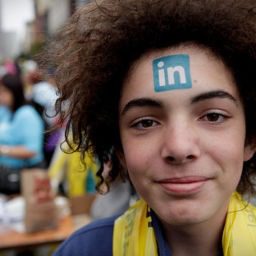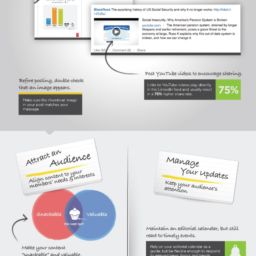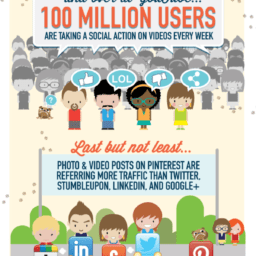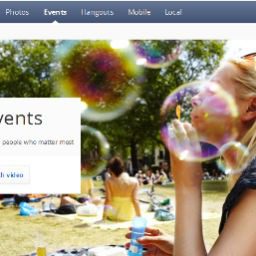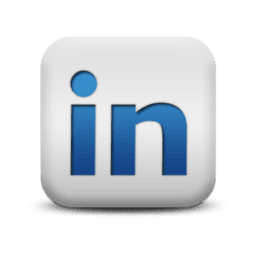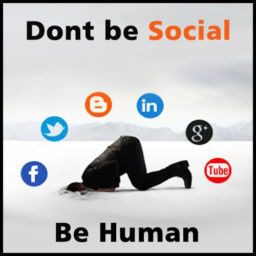Often, companies classify their marketing efforts into two distinct categories: online marketing and offline marketing. However, the line doesn’t need to be so definitive. By blurring the line between the two and using your social-media efforts to promote your live events (such as conferences and seminars), you gain an additional, very effective promotional channel to increase awareness, attendance, and participation. Here are the 7 ways to use social media to rock your next event by hubspot.
Tip #1: Create a hashtag.
A lot of people will undoubtedly be tweeting about your event. They may be sharing with their followers that they’ll be attending your event, asking questions about your event, or tweeting about the content during the event. No matter what they’re saying, it’s important for you to engage with these people and respond to their questions and comments.
Creating a hashtag is the easiest way to keep track of the conversations people are having about your event. Having one will not only be beneficial during the days and months leading up to the event, but also while it’s taking place and even after it’s over, so you can track what people thought about individual sessions and the event as a whole. Establishing a hashtag can help you create buzz for your event, as well as gather feedback that can be beneficial in planning future events. When creating a hashtag, choose something short and memorable and be sure to promote it during the planning process and during the event itself so people know what to use while they’re tweeting.
Tip #2: Promote regular updates about your event.
As you’re planning your event, use your social presence to announce news and updates about what attendees should look forward to. For example, when you secure a new speaker, share the news via your social media accounts. When registration opens, announce it using your social presence. When you confirm your sponsors, share that, too! Prospective attendees are looking for reasons why they should come to your event, and these types of announcements have the potential to sway people who are on the fence about coming. You just might make some additional ticket sales because of your social promotion.
Tip #3: Leverage ALL of your social media channels (and tailor your messaging to each).
Keep in mind that not all of your prospective attendees participate in every social channel. Certain people may only follow you on Twitter. Others may prefer LinkedIn. Therefore, promoting your event across all social media channels your prospective attendees populate should be an integral part of your event’s social media marketing strategy. Sure, different channels will require different tones and messaging, but utilizing more than one social network will increase the reach of your event messaging, so take the time to adapt your event’s social updates to cater to each network. For instance, you may not be targeting the same types of people in your LinkedIn group as you are on your Facebook page, but both types of people may be interested in attending your event, and it’s worth the effort to craft different messages to appeal to each group’s needs and interests.
Tip #4: Make sure your event’s promotional content is remarkable.
It’s easy to post updates about your upcoming event and encourage people to register, but what will make your event truly stand out from all the rest is the strength of your event’s promotional content. Just like all the other inbound marketing content you create, your event content needs to be remarkable. Run social media contests to get people excited about your event, and reward winners with prizes like free tickets. Create and share graphics or videos to give people a sneak peak into what will happen at your event. Write articles for your business blog that help your attendees plan and prepare for your event, and of course, share them in social media!
Tip #5: Create LinkedIn and Google+ event pages.
If you’re planning an industry event, LinkedIn should be the focus of a lot of your efforts. When people think of promoting an event in social media, they typically jump right to Facebook, but creating a LinkedIn event can be the perfect tool for targeting your industry. It will also give you a centralized page on which to post nothing but event updates, instead of cluttering up your main company page. Another venue you should consider using is oft-neglected Google+. Creating a Google+ event offers a few main benefits: automatic email invitations, and day-before-the-event reminders — as well as adding your event to the Google calendars of people who have indicated they’re attending. For smaller events — or even larger events with busy people — Google+ can be a great tool.
Tip #6: Allow attendees to ask your keynote speakers questions via Twitter.
During your event, many of your attendees will likely want some time to chat with your speakers and ask them questions. But as any event planner knows, that’s not always feasible. As an alternative, encourage attendees to tweet their comments and questions to speakers using the event hashtag. Make sure your speakers are aware of this initiative, since they may even want to answer some of the audience’s questions at the end of their presentations. Not only will this make your event more interactive, but it will also make attendees feel more connected to your speakers. It’s a simple tactic that is relatively easy to execute, but it will also really make your attendees feel like you value their thirst for knowledge. It will also show that you’ve taken the extra step to connect them with the thought leaders who can best help cater to their needs.
Tip #7: Be responsive in social media, even during the event.
The social media event updates shouldn’t stop when your event starts. Remember — there may be people asking questions about your event even when they’re on-site. Assign someone at your company with the sole task of monitoring the conversation around your hashtag and responding frequently throughout the event. No matter what attendees are saying, it’s important to make sure someone can answer their questions as quickly as possible. Doing so will reflect positively on your company and on your attendees’ overall experience at your event. Furthermore, encouraging engagement on Twitter could end up causing your hashtag to trend, or at the very least, expand the read of your event — and your company!
What other social media strategies can make for a more successful event?
Blog source : Hubspot.


